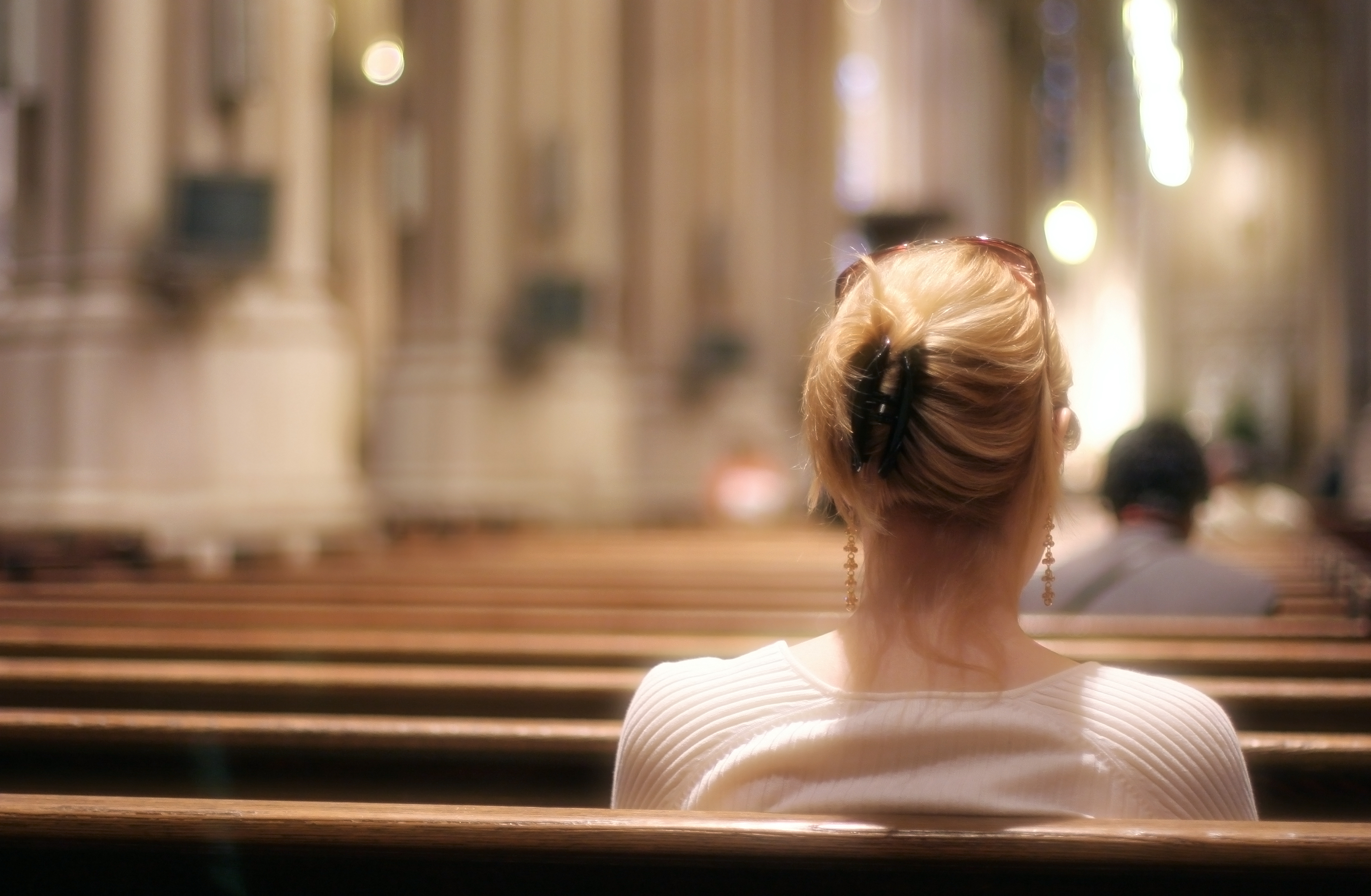Breaking the Stained-Glass Ceiling
News Based on facts, either observed and verified directly by the reporter, or reported and verified from knowledgeable sources.
When will women be seen as equal in the eyes of the Catholic Church? A case to give nuns parity with priests.

Good morning! Today is Friday, June 24, and you are reading today’s section of Examiner+, a digital newsmagazine serving Westchester, Putnam, and the surrounding Hudson Valley.
Need to subscribe — or upgrade your Examiner+ subscription to enjoy full access to all of our premium digital content? Take advantage of our special FREE TRIAL OFFER.
Take Examiner+ on a test drive today at NO CHARGE for a full month. Enjoy full membership-level access to all of our premium local content, delivered straight to your inbox six times a week.
This is a political ad from Dana Levenberg for New York Assembly.


A few years ago, on Ash Wednesday, I found myself sitting in Church, just like millions of other Catholics worldwide, waiting to receive ashes. Before mass began, the priest officiating the service called for volunteers from the congregation to help with collections and dispensing the Eucharist, which is a common ask at most masses.
After service, the priest thanked those that helped during mass; “I’d like to thank the women that volunteered today,” said the priest. “Women get things done.”
The priest’s remark made me laugh and wonder if women get things done, then why isn’t that reflected in the eyes and structure of the Catholic Church?
For the non-Catholics, and the lapsed who may need a refresher: nuns and priests do not have equality in responsibility or power in the Church. Most notably, nuns cannot celebrate mass, read the gospel at Church (except in the absence of a priest), nor can they administer sacraments. But even greater than that, they are not part of the church hierarchy, with bishops, cardinals, and of course, the Pope making major church-wide decisions without input from a nun or female. Frankly, as a female Catholic, I’m tired of the disparity.
As a cradle Catholic, I attended parochial school from kindergarten through eighth grade. My time in school was overwhelmingly positive despite the hackneyed jokes like being called a “Catholic School Survivor.” I think back on my time there fondly. Except for the time in seventh grade when I was accused of blasphemy. Hey, it happens to the best of us.
The greatest lesson instilled in me during my time there was the importance of altruism and helping others when possible. I learned this through the examples set forth by my teachers, most of whom were women, strong women with great convictions who lived this every day of their lives.
“We women may not be able to read the gospel from the pulpit, but we can certainly read between the lines”
My parish wasn’t alone in having a primarily women-dominant workforce. Most of these roles are filled by women, from rectory administrators to religious education teachers, to choir directors and beyond. Though we may not be saying mass on the altar, women are the stalwart partisans that keep congregations running. We are already doing much of the work behind the scenes. Why not promote and make us more visible leaders, fulfilling duties we’ve already been doing?
Historically, the imbalance of genders is nothing new; it’s a long-established precedent set and followed for centuries. But that doesn’t mean there haven’t been those who have challenged this precedent.
The Pontifical Biblical Commission, a body established by Pope Leo XIII, voted in 1976 in favor that there is nothing in scripture alone that prevents the ordination of women. Further, the commission noted that it would not necessarily violate Christ’s intentions if the Church decided to ordain women.
But with progress comes setbacks. In 1994, Pope John Paul the II doubled down on the Church’s status quo through his Apostolic Letter, “Ordinatio Sacerdotalis,” which outlines that ordination is reserved for men alone.
Those vocal in favor of women being ordained put themselves at risk of retaliation by the Church. In 2012, Roy Bourgeois, a priest at Maryknoll, a religious order based in Ossining, was excommunicated from the Catholic Church and stripped of his collar because he supported women’s ordination.
In January of 2021, Pope Francis amended canon law to allow women to serve as lectors and acolytes, roles where congregants assist with different parts of the mass, including reading scripture and aiding in preparing the altar. If you’ve been to mass in the last few decades, you’d realize this has already been happening, and the Church is behind local parishes in this progress.
I’ve heard fellow Catholics make the argument that the Church isn’t like other environments where people sometimes work with the hope to ascend to more significant positions, like in politics or corporate — and that women must be humble and we shouldn’t aspire to break the so-called “stained-glass” ceiling.
We women may not be able to read the gospel from the pulpit, but we can certainly read between the lines. The idea that no man, especially those with a higher rank in the Church, has not done any campaigning to be appointed to his leadership role is outrageous and false. So why must women be the only ones expected to stay humble? Why can’t we aspire to climb higher, to have our gifts as women perceived by the Catholic population, but more importantly: to become a greater asset to the devout Catholic women in the congregation? Our service as lectors, eucharist ministers, and nuns is not one of leadership; it’s one of consolation at best since we have no voice nor representation in the church hierarchy.
Ultimately, I don’t care about women ascending higher in the Church for reasons of power; I want women to be visible for reasons of personability. With Roe vs. Wade in the national purview, the messaging behind the Church’s pro-life stance would be much stronger, and I believe more women would be open to hearing it from a fellow woman. What if a woman in the congregation just had a miscarriage and is grappling with her faith? Having a visible female leader may help that woman who suffers navigate through a time that could potentially break her faith.
During Jesus’ crucifixion, most of his apostles, all males, abandoned him, leaving him to die alone. But he wasn’t alone. A woman named Mary Magdalene, a disciple of Jesus stayed with him through the crucifixion. It seems that even in current times, women are still the gender standing with their faith. Americans who identify with a religious affiliation have declined in recent years, with millennials being the greatest generational dropoff. The numbers in the clergy have waned as well, causing a crisis for parishes. As of 2014, there were about 50,000 nuns in the U.S. and only about 36,000 priests.
In addition, the Church is resting its future in a gender that’s not as committed to their faith. According to a 2014 Pew Research study, women are more likely than men to say that religion is “very important” in their lives. A 2016 Pew Research Center report found that two-thirds of roughly 5,000 Americans surveyed said their mom had the most influence on their religious lives. Will future moms continue to raise their children in the Catholic faith if they feel they aren’t equals while sitting in church pews? Doubtful.
While women continue to get “stuff done” in parishes worldwide, the Church needs to level up the parity between priests and nuns. The future of the Church depends on it.
Erin Maher is a writer and Westchester native. She has written on a myriad of topics, including life as a millennial and tennis. When not writing, Erin can be found on the tennis and pickleball courts or lovingly scrolling through pictures of dogs on Instagram. For more of her musings, visit erinmaherwrites.com, and follow her on Instagram @erinmaherwrites and Twitter @erinmaherwrites
Examiner Media is a proud participant in The Trust Project.
CLICK HERE to review our best practices and editorial policies.
This piece is an opinion article. CLICK HERE to learn about our definitions for types of stories.
We welcome corrections, story ideas, and general feedback. CLICK HERE to use our actionable feedback form.
Visit www.TheExaminerNews.com to read our hyperlocal online community news, sports, and feature coverage.

Examiner Media – Keeping you informed with professionally-reported local news, features, and sports coverage.

